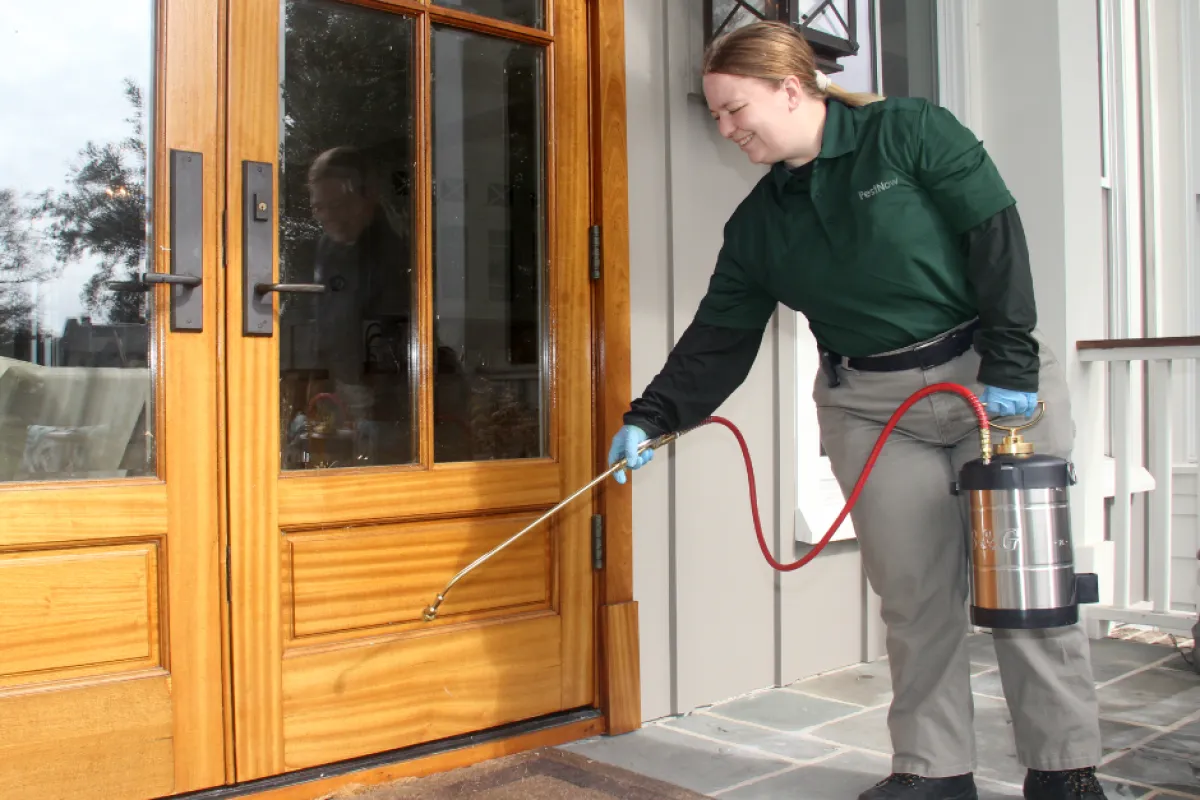A1 Pest Control Charlotte NC Bed Bugs - Professional Elimination Services
Wiki Article
Bed Insect Treatment Failure: Contrasting Chemical Vs. Non-Chemical Solutions
In the world of insect control, particularly when managing the consistent issue of bed insects, the choice in between chemical and non-chemical treatment remedies can be a critical one. Both approaches use distinct benefits and drawbacks, affecting elements such as performance, security factors to consider, and general price. By taking a look at the nuanced details of each technique, a more clear understanding of which path to seek in addressing a bed insect infestation can be obtained.Performance of Chemical Treatments
Chemical treatments for bed bug infestations have been widely recognized for their potent and rapid efficacy in eradicating these insects. When considering the effectiveness of chemical treatments, it is important to understand that they can offer a quick and comprehensive service to a bed bug problem.Moreover, chemical treatments have the benefit of supplying recurring impacts, implying that they can remain to eliminate bed pests also after the preliminary application. This residual activity is specifically advantageous in combating any prospective re-infestations. Additionally, the fast action of chemical therapies can bring alleviation to individuals encountering extreme bed insect infestations, permitting them to reclaim control of their home rapidly.
Security Concerns With Chemical Solutions
One critical aspect that needs mindful consideration when making use of chemical services for bed insect therapy is guaranteeing the safety and security of residents and the setting. While chemical treatments can be efficient in eradicating bed bugs, they might posture dangers otherwise dealt with appropriately. Among the key safety worry about chemical remedies is the potential damage they can create to human health. Exposure to certain chemicals utilized in bed insect therapies can bring about respiratory system issues, skin irritation, or other unfavorable reactions, especially in people with pre-existing problems or sensitivities. Furthermore, incorrect application or dose of chemical pesticides can lead to hazardous deposits sticking around in the cured location, presenting long-lasting health and wellness dangers to passengers.In addition, the ecological effect of chemical services is another substantial consideration. Some pesticides utilized in bed bug treatments may be harmful to beneficial pests, wild animals, and ecological communities if they seep into the dirt or water supply. It is important to use chemical therapies deliberately, adhering to security guidelines, and taking into consideration less toxic choices to reduce these threats and make sure the effective and secure management of bed pest infestations.
Advantages of Non-Chemical Approaches
Taking into consideration the potential safety and security concerns and ecological impact related to chemical solutions for bed insect therapy, exploring non-chemical techniques presents an appealing choice with several distinctive advantages. Non-chemical techniques supply a safer choice for houses, particularly those with pet dogs, individuals, or kids conscious extreme chemicals. These methods eliminate the threats of exposure to hazardous materials, lowering the capacity for adverse health impacts. Moreover, non-chemical treatments are ecologically pleasant, as they do not add to air or water air pollution, making them a lasting selection for insect control.In addition, non-chemical remedies can be efficient in targeting bed bugs, consisting of hard-to-reach areas where chemical therapies may not penetrate - A1 pest control services charlotte. Techniques such as warmth treatment, vacuuming, vapor cleaning, and cushion coverings offer detailed removal without the use of damaging chemicals.
Limitations of Non-Chemical Treatments

In addition, non-chemical treatments frequently call for several applications to achieve effective elimination. This can be time-consuming and might not always assure total elimination of all bed pests and their eggs, particularly A1 bed bug treatment in charlotte in surprise or hard-to-reach places.
Furthermore, the success of non-chemical therapies heavily counts on appropriate execution and thoroughness, which can be challenging for people without expert proficiency. Poor application of non-chemical methods might result in insufficient eradication, causing persistent invasions and the demand for extra therapies.
For that reason, while non-chemical therapies have their benefits, it is vital to recognize these limitations and consider them when establishing the most efficient strategy for managing bed insect problems.
Cost Comparison: Chemical Vs. Non-Chemical Options
Provided the limitations associated with non-chemical therapies, a necessary element to examine in the context of bed insect management is the price contrast between chemical and non-chemical options. In comparison, non-chemical treatments like heat therapy or heavy steam can be more pricey, with expenses ranging from $1,000 to $6,000 for a whole home. While the preliminary cost of chemical therapies may appear reduced, multiple therapies may be required to completely eliminate the infestation, possibly raising the total cost.Verdict

Thinking about the potential safety and security worries and environmental influence linked with chemical remedies for bed insect treatment, discovering non-chemical techniques presents an encouraging option with numerous unique benefits.Provided the limitations connected with non-chemical treatments, a crucial element to evaluate in the context of bed insect management is the expense comparison between chemical and non-chemical alternatives. In contrast, non-chemical therapies like heat therapy or steam can be a lot more expensive, with expenses varying from $1,000 to $6,000 for an entire home. While the initial cost of chemical treatments may appear lower, numerous treatments might be needed to totally eliminate the infestation, possibly enhancing the general price.In conclusion, when contrasting chemical and non-chemical bed bug treatment alternatives, it is important to take into consideration effectiveness, security, advantages, constraints, and cost.
Report this wiki page